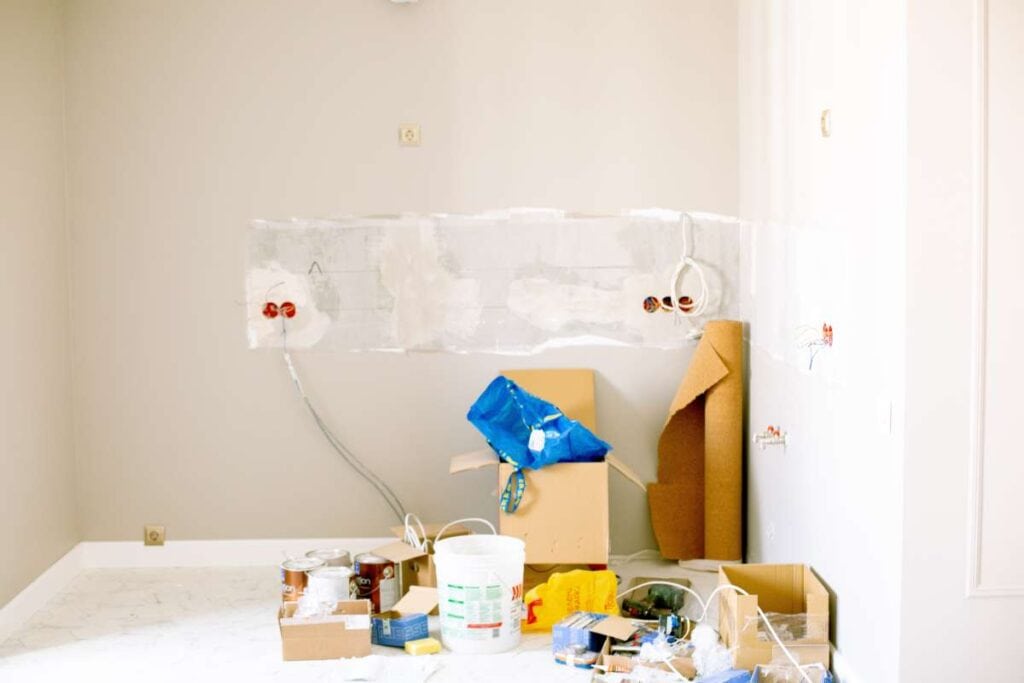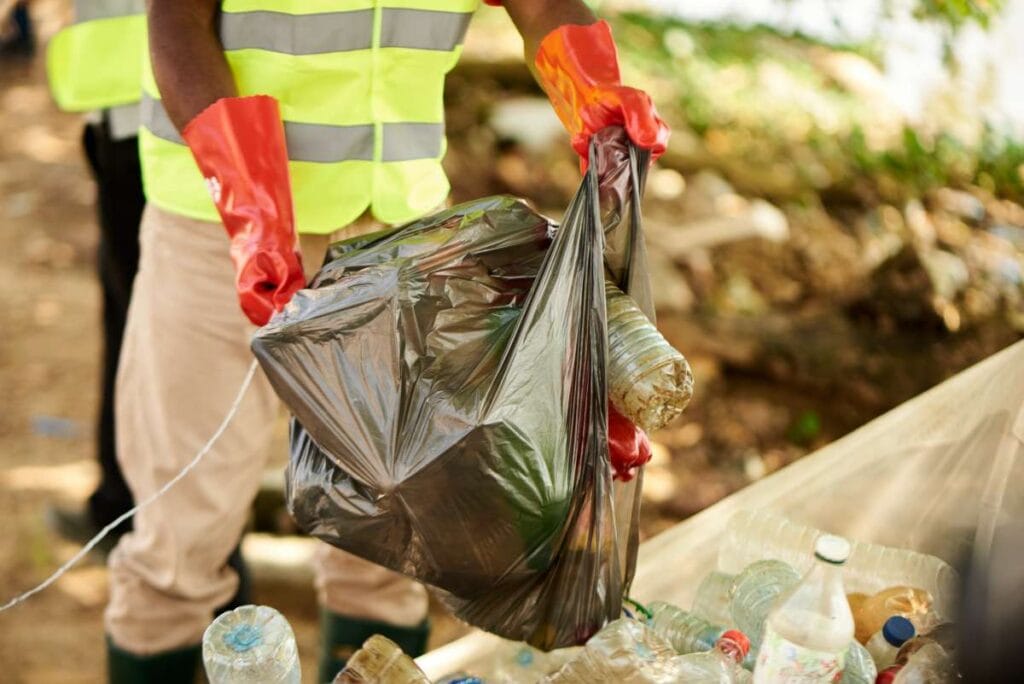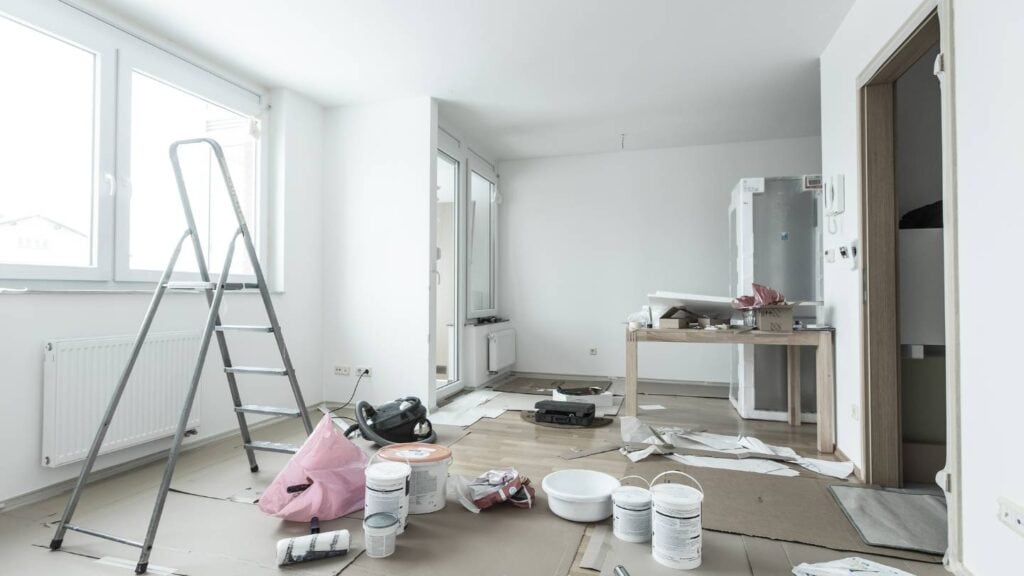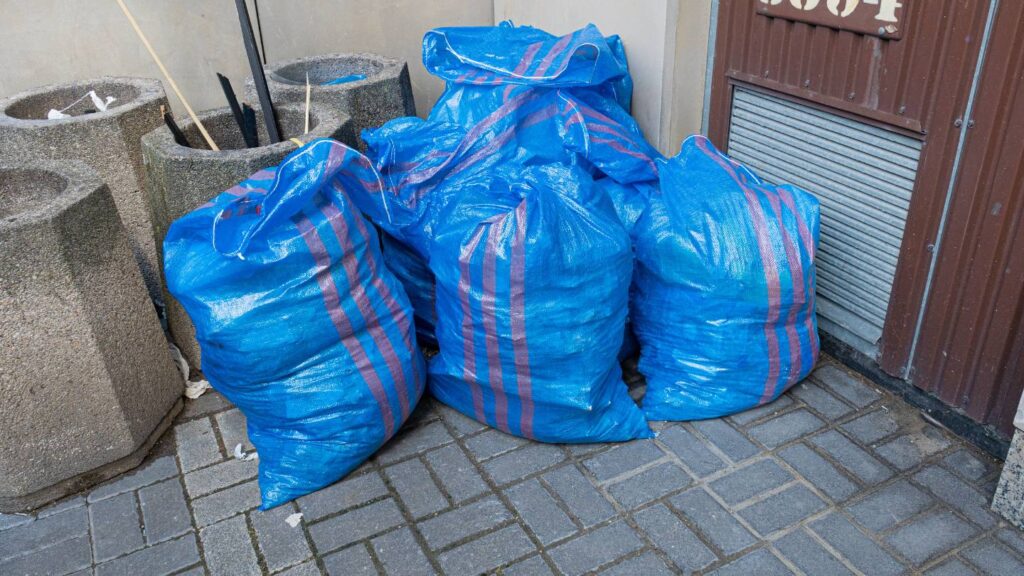Our homes, which are already refuges from the hectic world we inhabit, tend to become even more cluttered and disorganised due to the accumulation of possessions. On the other hand, hoarding is a complicated behavioural condition some people experience when clutter goes beyond simple disorder.
Junk removal specialists play an important role in dealing with hoarding and residential clutter by assisting people in reclaiming their living spaces and encouraging a healthier, more organised atmosphere.
Get to Know the Difficulty of Household Clutter
A person's health and happiness, as well as their home life satisfaction, can be profoundly affected by excessive clutter. There are many kinds of clutter, including a surplus of clothes and toys, broken furniture, and piles of old magazines. To fully grasp the significance of junk hauliers, one must be familiar with the characteristics and difficulties of domestic clutter.
When there is too much clothing and toys around the house, it can be a sign of clutter. A family's possessions can quickly become disorganised and difficult to manage if they amass an excessive amount of these things over time. Clutter not only detracts from the home's aesthetic value but also adds stress to those living there. When children are constantly tripping over their belongings or those of their siblings, it can be not easy to keep the peace and order in the home.
A large amount of unwanted furniture also adds to the chaos in most homes. Many people own furniture they don't use anymore because their tastes or lifestyles have changed. Junk furniture, such as old couches, tables, and chairs, can quickly accumulate, taking up valuable floor space and lowering the home's curb appeal. Challenging as it is to remove heavy furniture physically, the mental and emotional baggage associated with these belongings only makes the task of decluttering more difficult.
Another kind of clutter found in households is stacks of outdated magazines. Printed materials, such as newspapers, magazines, and stacks of them, tend to pile up over time. Some may have sentimental significance, but eventually, the sheer amount will cause your home to look chaotic and unorganised. The challenge comes in deciding what to retain and what to toss, in addition to physically removing the stuff.
Junk removal services use a systematic and individualised approach to each client since they understand that residential clutter can take many forms. Since every household has its distinct filth, there is no universally applicable method for cleaning it. To develop a decluttering technique that is both efficient and successful, these specialists know that a customised strategy is necessary.
A thorough evaluation and planning step comprise the methodical approach utilised by expert rubbish hauliers. They assess the disorganised area thoroughly, considering the client's wants and requirements before removing anything. The removal strategy is tailored to the client's specific needs, preventing the accidental disposal of valuable things.
An essential part of rubbish disposal is sorting and categorising items. The experts sort through the mess by value, utility, and whether or not they may be recycled or donated. This meticulous sorting helps with sustainability by reducing the time and energy spent on removal and keeping usable materials out of landfills.
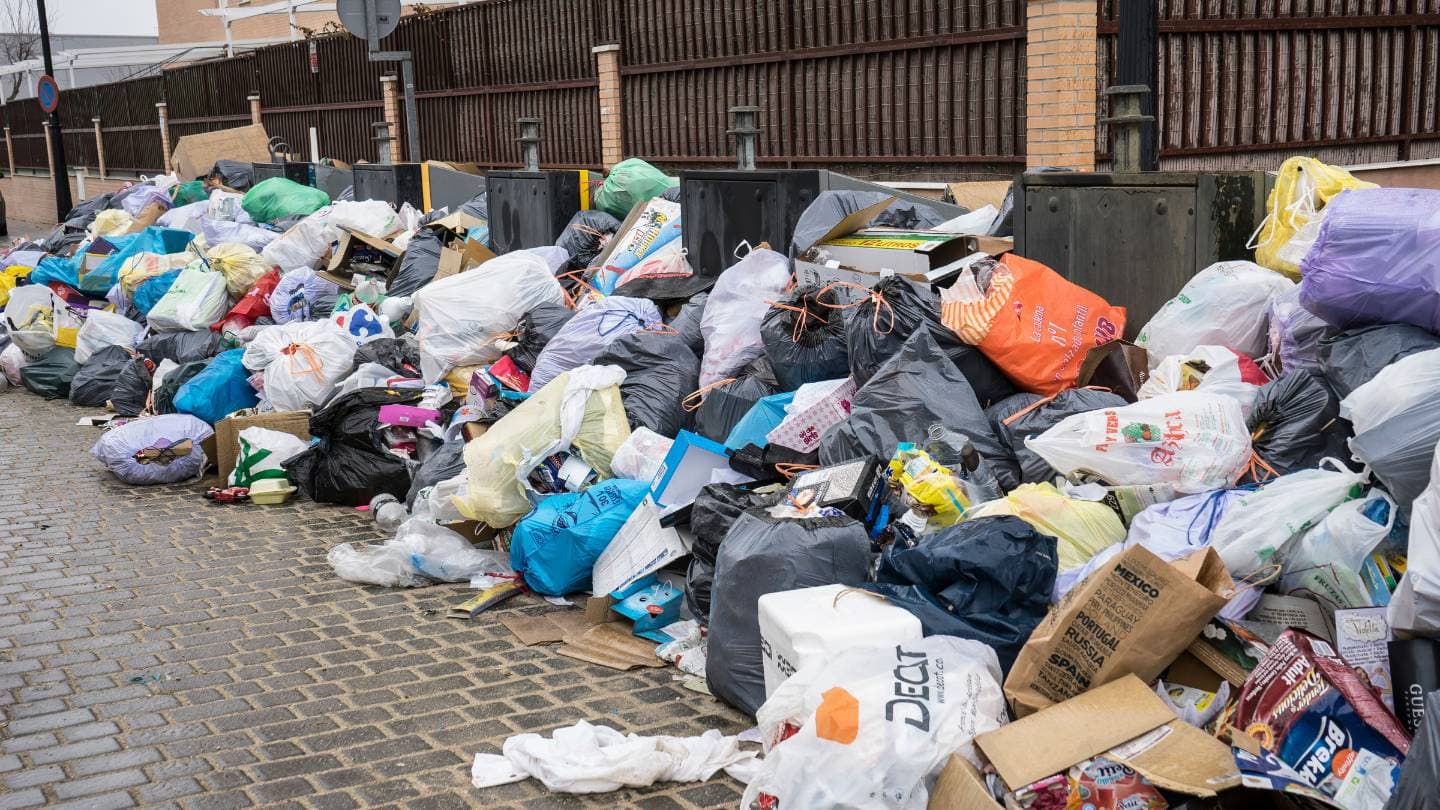
Interpreting Hoarding Behaviour
Hoarding is more than just a problem with clutter; it's complicated. It is characterised by an inability to let go of belongings, no matter how valuable they are. People engage in this behaviour when their living areas are extremely crowded, making it hard for them to do what they need to do and reach their goals in life.
Experts in garbage removal are vital in tackling the complex problem of hoarding behaviour, which necessitates a nuanced approach to understanding and interpreting the behaviour.
Being unable to part with anything, no matter how sentimental or material, is at the heart of hoarding behaviour. When someone hoards, they develop an intense emotional connection to the things they own, unlike in cases of normal clutter, when things are thrown out because they are no longer needed or used.
Many things trigger this attachment, such as worrying about losing the object or thinking you might need it later. The end consequence is a hoard of possessions beyond simple disarray, making it difficult to go about one's everyday life and lowering one's quality of life overall.
It takes delicacy and an in-depth knowledge of the psychological components to work with those who are hoarding. Hauling is a symptom of deeper mental issues, not simply a physical one, according to experts in rubbish removal. Therefore, they work closely with mental health professionals and support groups to devise a comprehensive plan that deals with the root causes of hoarding behaviour and removing clutter.
Expert junk hauliers use a two-pronged approach, the first of which is a thorough evaluation of the hoarding problem. This necessitates getting to know the person's unique obstacles, measuring the amount of clutter, and learning about the sentimental value of different possessions. An individual-centred strategy for decluttering may be developed from this thorough evaluation, which guarantees a more successful and compassionate approach.
When dealing with hoarding behaviour, working with mental health professionals is essential. Experts in garbage removal know that a combined effort involving organisational solutions and therapeutic interventions is necessary for a successful intervention. Experts in mental health can help people with hoarding understand the emotional nuances of the disorder and provide them with the support and direction they need to overcome the obstacles they face when trying to let go.
The fine line between acknowledging the need for clutter removal and maintaining the individual's individuality is one of the most challenging aspects of understanding hoarding behaviour. Both the physical space and the emotional support and help needed to break the cycle of hoarding are part of the two-pronged technique. It recognises that hoarding is frequently a defence strategy for more profound emotional problems and that the process of elimination requires empathy and understanding.
The Rubbish Removal Process
Assessment and Planning
Before any removal takes place, rubbish removal experts conduct a thorough assessment of the cluttered space. This involves understanding the client's specific needs, identifying valuable items, and determining the level of hoarding, if applicable. A detailed plan is then crafted, outlining the steps to take during removal.
Sorting and Categorizing
The removal team systematically sorts through the clutter, categorising items based on their value, usability, and potential for donation or recycling. This step ensures that nothing of importance is discarded inadvertently and that reusable items find new homes, contributing to sustainability efforts.
Safe and Responsible Disposal
Rubbish removal experts are well-versed in proper disposal methods, adhering to environmental regulations and safety standards. Hazardous materials and electronic waste are handled carefully, ensuring they are disposed of responsibly to minimise environmental impact.
Coordination with Mental Health Professionals
In cases of hoarding, collaboration with mental health professionals is crucial. Rubbish removal experts work closely with therapists, psychologists, and social workers to understand the psychological aspects of hoarding and to provide support throughout the decluttering process.
Post-Removal Support
The process continues after the removal of clutter. Rubbish removal experts often provide post-removal support, guiding clients on maintaining an organised living space. This may involve recommending organisational systems, connecting clients with ongoing support networks, or offering periodic check-ins to ensure long-term success.
Challenges Faced by Rubbish Removal Experts
Emotional Attachments
Dealing with individuals experiencing hoarding challenges requires a deep understanding of the emotional attachments to possessions. Rubbish removal experts must navigate these emotions with empathy and compassion, creating an environment encouraging trust and cooperation.
Safety Concerns
Hoarding can pose safety risks, including blocked exits, fire hazards, and unsanitary conditions. Removal experts are trained to prioritise safety, employing the necessary precautions to ensure a secure working environment for themselves and the occupants.
Respecting Client Autonomy
While the goal is to declutter and create a more functional living space, rubbish removal experts must respect the autonomy of their clients. In cases of hoarding, decisions about what to keep and discard can be challenging, and the removal process should be a collaborative effort rather than an imposition.
Benefits of Professional Rubbish Removal
Restored Living Space
The most immediate benefit of rubbish removal is restoring a functional and organised living space. This not only improves the home's visual appeal but also enhances its occupants' overall well-being.
Improved Mental Health
For individuals dealing with hoarding tendencies, removing clutter can be a transformative step in improving mental health. The reduction of stress and anxiety associated with a cluttered living environment can have profound effects on an individual's psychological well-being.
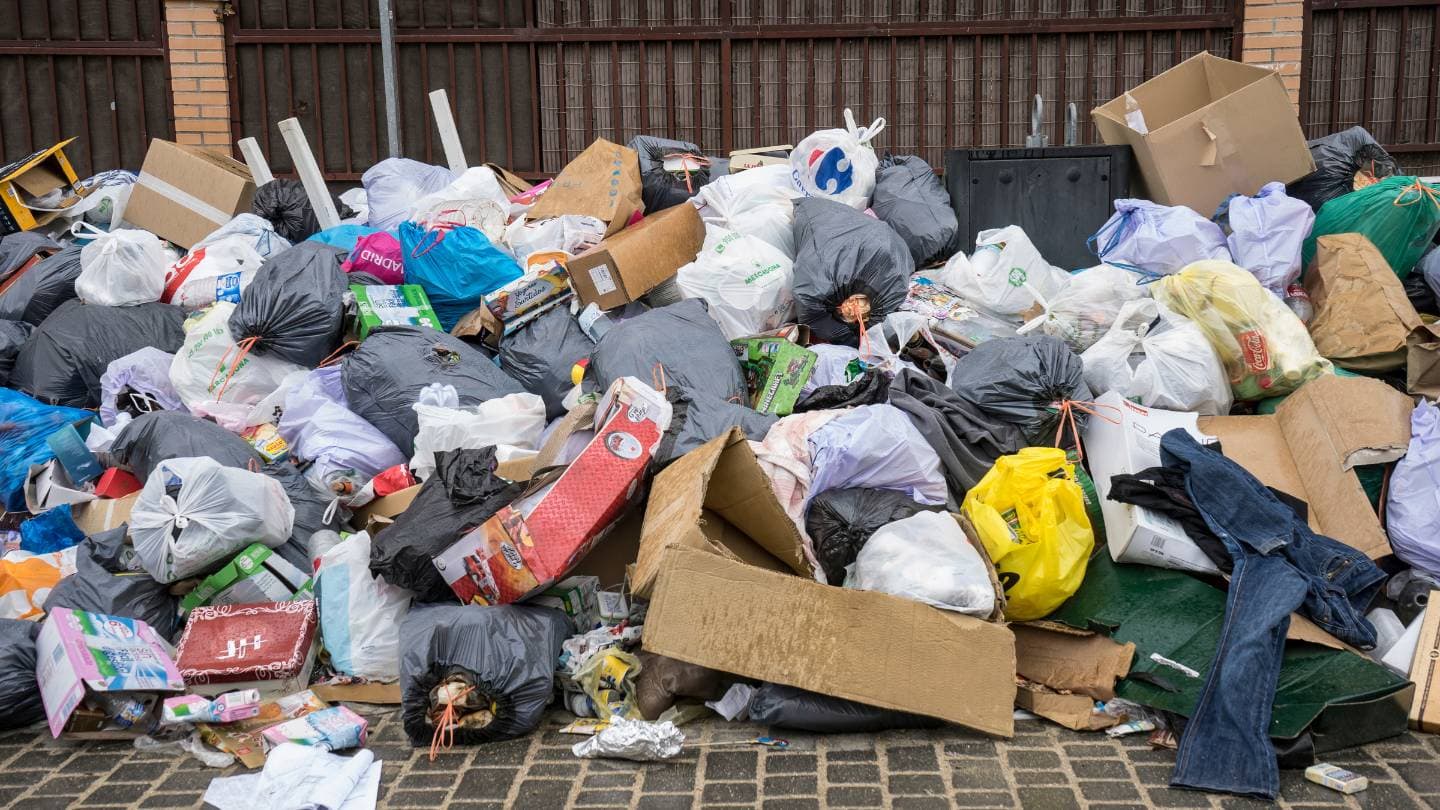
Community and Environmental Impact
Rubbish removal experts play a crucial role in promoting sustainability by responsibly disposing of waste and facilitating the donation or recycling of usable items. This contributes to community well-being and minimises the environmental impact of excessive waste.
Collaboration with Mental Health Professionals
The collaboration between rubbish removal experts and mental health professionals fosters a holistic approach to addressing hoarding behaviour. By combining organisational solutions with therapeutic interventions, this collaborative effort aims to bring about lasting change in individuals struggling with hoarding tendencies.
Conclusion
Professional junk hauliers are an important resource for dealing with hoarding and other forms of domestic clutter, which can negatively affect a person's well-being, contentment, and quality of life at home. Lots of outdated magazines, shattered furniture, and an overabundance of clothing and toys are all examples of what is known as excessive clutter. Because every home is different, professional rubbish hauliers take a methodical and personalised approach to serving their customers. Before clearing out the cluttered space, they take the client's needs and desires into account.
Sorting and categorising materials according to value, usability, and donation or recycling potential is an important aspect of trash disposal. Reduced energy and time spent on removal and the preservation of valuable materials from landfills are two ways in which this careful sorting contributes to sustainability.
An inability to part with possessions, irrespective of their worth, is a hallmark of hoarding, which extends beyond a simple clutter problem. A powerful emotional attachment to the possessions is what sets off hoarding, which can progress to more than just chaos and ultimately reduces one's quality of life and makes it hard to go about everyday tasks.
When dealing with hoarding, professionals in the field utilise a two-pronged strategy. They begin by taking stock of the hoarding problem, learning about the specific challenges faced by the person and the emotional significance of their belongings. An individual-centered approach to decluttering is derived from this evaluation. Collaborating with mental health experts is vital because they offer guidance and support that individuals need to overcome the challenges they encounter when attempting to let go.
The benefits of professional waste removal include restoring a functional living space, boosting mental health, promoting sustainability, and developing a collaborative effort between rubbish removal experts and mental health practitioners. These experts strive to help people with hoarding tendencies achieve long-term success by integrating organisational solutions with therapeutic interventions.
Content Summary
- Homes, often considered refugees, can become cluttered and disorganized due to the accumulation of possessions.
- Hoarding is a complex behavioral condition where individuals struggle to let go of belongings, resulting in extreme clutter.
- Junk removal specialists assist in reclaiming living spaces, fostering a healthier and more organized atmosphere.
- Excessive clutter affects health, happiness, and home life satisfaction, impacting overall well-being.
- Various types of clutter include surplus clothes, broken furniture, and stacks of old magazines.
- Junk hauliers employ a systematic and personalized approach to address diverse forms of residential clutter.
- Assessment and planning are critical steps in junk removal, ensuring a tailored strategy for each client's needs.
- Sorting and categorizing items facilitate sustainable removal and contribute to environmental efforts.
- Hoarding behavior involves an intense emotional attachment to possessions, making it difficult to discard anything.
- Junk removal specialists collaborate with mental health professionals to develop a comprehensive strategy for hoarding.
- The two-pronged approach involves evaluating hoarding problems and addressing root causes while removing clutter.
- Working with mental health professionals is essential to understanding the emotional nuances of hoarding behavior.
- The delicate balance between clutter removal and respecting individual autonomy is a challenge in hoarding interventions.
- The rubbish removal process includes safe disposal, coordination with mental health professionals, and post-removal support.
- Hoarding can pose safety risks, and removal experts prioritize safety by implementing necessary precautions.
- Emotional attachments to possessions require rubbish removal experts to navigate with empathy and compassion.
- Rubbish removal benefits include a restored living space, improved mental health, and positive community and environmental impact.
- Improved mental health is a transformative outcome for individuals dealing with hoarding tendencies.
- Rubbish removal experts contribute to sustainability by responsibly disposing of waste and facilitating donations or recycling.
- Collaboration between rubbish removal and mental health professionals fosters a holistic approach to addressing hoarding behavior.
- Hoarding behavior arises from the inability to let go of possessions, creating clutter that hinders daily activities.
- A surplus of clothing and toys contributes to household clutter, affecting both aesthetics and stress levels.
- Discarded furniture poses challenges in decluttering due to the physical and emotional complexities associated with bulky items.
- Stacks of outdated periodicals, while potentially sentimental, contribute to a chaotic and disorganized living space.
- Rubbish removal specialists use a customized approach, recognizing the uniqueness of each household's clutter.
- Thorough evaluation and planning are essential steps in junk removal, preventing the accidental disposal of valuable items.
- Sorting and categorizing items based on value and usability contribute to sustainability and efficient clutter removal.
- Hoarding behavior requires collaboration with mental health professionals to address underlying emotional challenges.
- Post-removal support from rubbish removal experts guides clients in maintaining an organized living space.
- The collaboration between rubbish removal and mental health professionals aims to bring about lasting change in individuals struggling with hoarding tendencies.
Frequently Asked Questions
Professional trash removal services may manage domestic items, building debris, green garbage, electronic waste, and dangerous materials. They can handle many waste types and recycle or dispose of them.
Waste removal prices depend on volume, type, and location. Some firms charge by the amount of trash space in their trucks, while others offer fixed rates or customised quotes based on task requirements.
Professional trash removal services often recycle. To find recyclables, they actively sort at the collecting location. These things are recycled, helping sustainability and lowering waste disposal's environmental impact.
Scheduling trash removal is usually easy. Most services offer online or phone booking for convenient pickup times. Many removal firms attempt to respond quickly, especially for critical situations like relocation or building.
Professional trash hauliers handle dangerous materials legally and securely. Compliance with local legislation is ensured by thorough identification, containment, and disposal methods. Customers can ask about hazardous waste management and environmental and public health protection.



